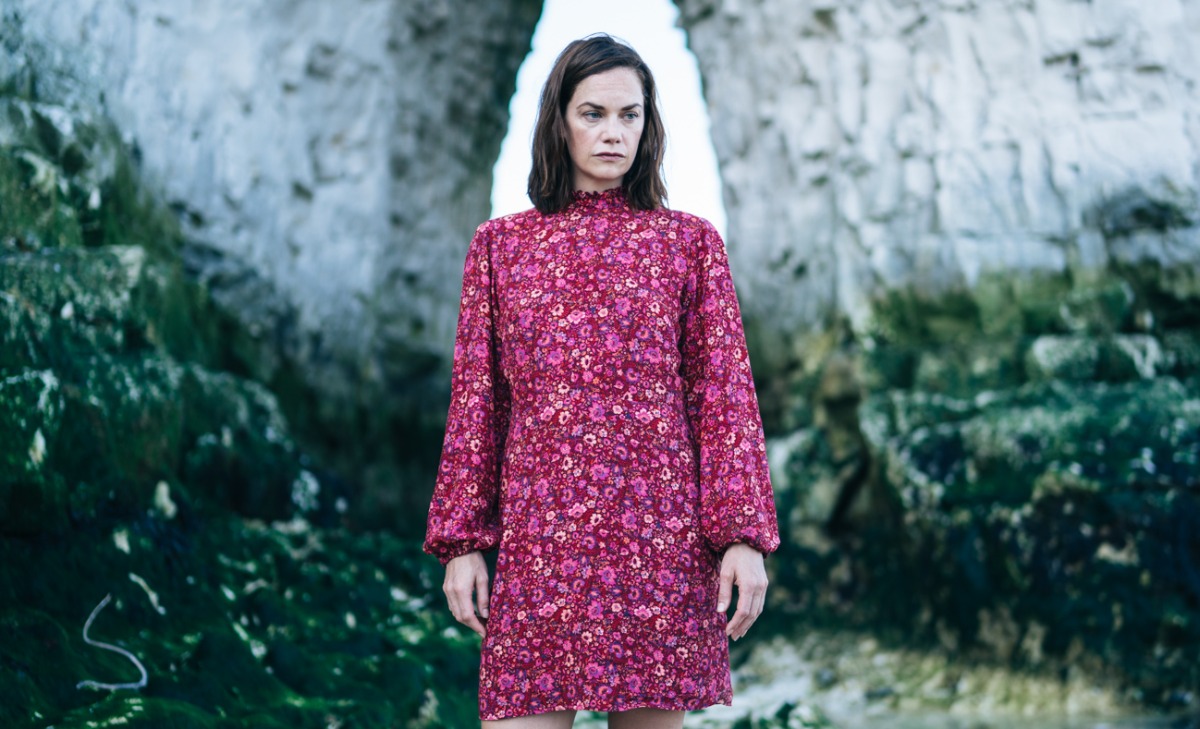“True Things” is a “romantic” drama that is not romantic in the slightest. In the tradition of films like Catherine Breillat’s “Romance” and Adrian Lyne’s “9 ½ weeks,” the focus is on what is revealed about a female protagonist by how much she is willing to sacrifice to briefly experience passion with an unreliable yet sexy man. This premise is fatally undermined by the decision to keep Kate (Ruth Wilson) a vague figure as sophomore director, Harry Wootliff, invites audiences to project their own pasts onto this broadly sketched dynamic of impossible desire based on a book by Deborah Kay Davies, ‘True Things About Me.’ Instead of conjuring resonance, the result is a bland heroine whose lack of distinguishing features makes it hard to give a damn as she goes through the motions of setting fire to her life.
READ MORE: Venice Film Festival 2021 Preview: 12 Must-See Films To Watch
Kate is in her mid-to-late 30s and works as a benefits advisor in the picturesque British seaside town of Ramsgate. Unlike her friend and colleague, played by Hayley Squires, she is single, childless, and prone to distraction at work. When a sexy claimant (Tom Burke with a blonde dye job) flirts with her, she is ripe with readiness, the light coming on in her eyes for the first time. They fuck in a car park, her head banging against a concrete wall. Then they fuck on the forest floor by a lake.
Josephine Decker’s regular cinematographer Ashley Conner shoots in a claustrophobic 1:33 aspect ratio. In the benefits office scenes, Kate seems trapped in a box, sitting stock-still at her desk under dim institutional lighting, wearing the regulation brown shoes that her new lover criticizes. She is in frequent trouble with her bosses, who fail to appreciate her sense of humor. When she makes excuses to skive from her job for trysts with the man she calls ‘Blond,’ Connor switches to a handheld camera, lurching around in extreme close-up as the intoxicating power of passion overrules any sense of stranger danger. Burke sports an East London accent that distinguishes him from the posh nightmare he played in Joanna Hogg’s “The Souvenir.” Still, both characters share a personal evasiveness sublimated by surface charms. Kate knows nothing about Blond, beyond the fact that he was recently in jail for four months. Her lack of self-preservation is frustrating to behold and poses implicit questions over why she is so careless with her heart.
READ MORE: Fall 2021 Movie Preview: 60+ Must-See Films
“True Things” contains false notes in the characterization of Kate’s family and one friend. Wootliff attempts to show Kate’s alienation in lazy shorthand by having them react in a shrill one-note fashion, like a Greek chorus of scolds, as the relationship with Blond takes its toll. These caricatures sit awkwardly in a film world that centers on the supposed psychological complexity of its leading lady. Wilson is given little to do or show beyond pouting. Burke’s confident charisma makes it obvious what she sees in him, but it’s a mystery what he sees in her beyond her status as a flesh and blood woman. This is performance as a blank slate and with the camera cleaving to her non-character for the entire film, the result is a lot of dead air.
Occasionally, a scene rises up to hint at the more entertaining film submerged beneath this one. Kate goes on a blind date. Primed by the sexy status quo of her relationship with Blond she cannot keep her clothes on, to the horror of her normie date. Connor’s work is flawless, carrying the film on her back for whole stretches, as she conveys in visual language an electricity that is not in the script or characterization. After Kate’s bad date, she totters home to see Blond waiting to take her to a party. The allure of wiping the night’s slate clean with the potent combo of drink, drugs, music, and friendly strangers is irresistible. Connor brings this thesis to life, finding the ephemeral sparkle of hedonism as it burns as well as the squalor when it fades away. “True Things” spins such a familiar tale that its success rides on how convincingly a mood is conjured. It needs to be so raw that the predictable is rewritten anew in the specific chemistry of these characters. Instead, it is, for the most part, a mood piece drained of mood. [C-]
Follow along with our full coverage from the 2021 Venice Film Festival here.





